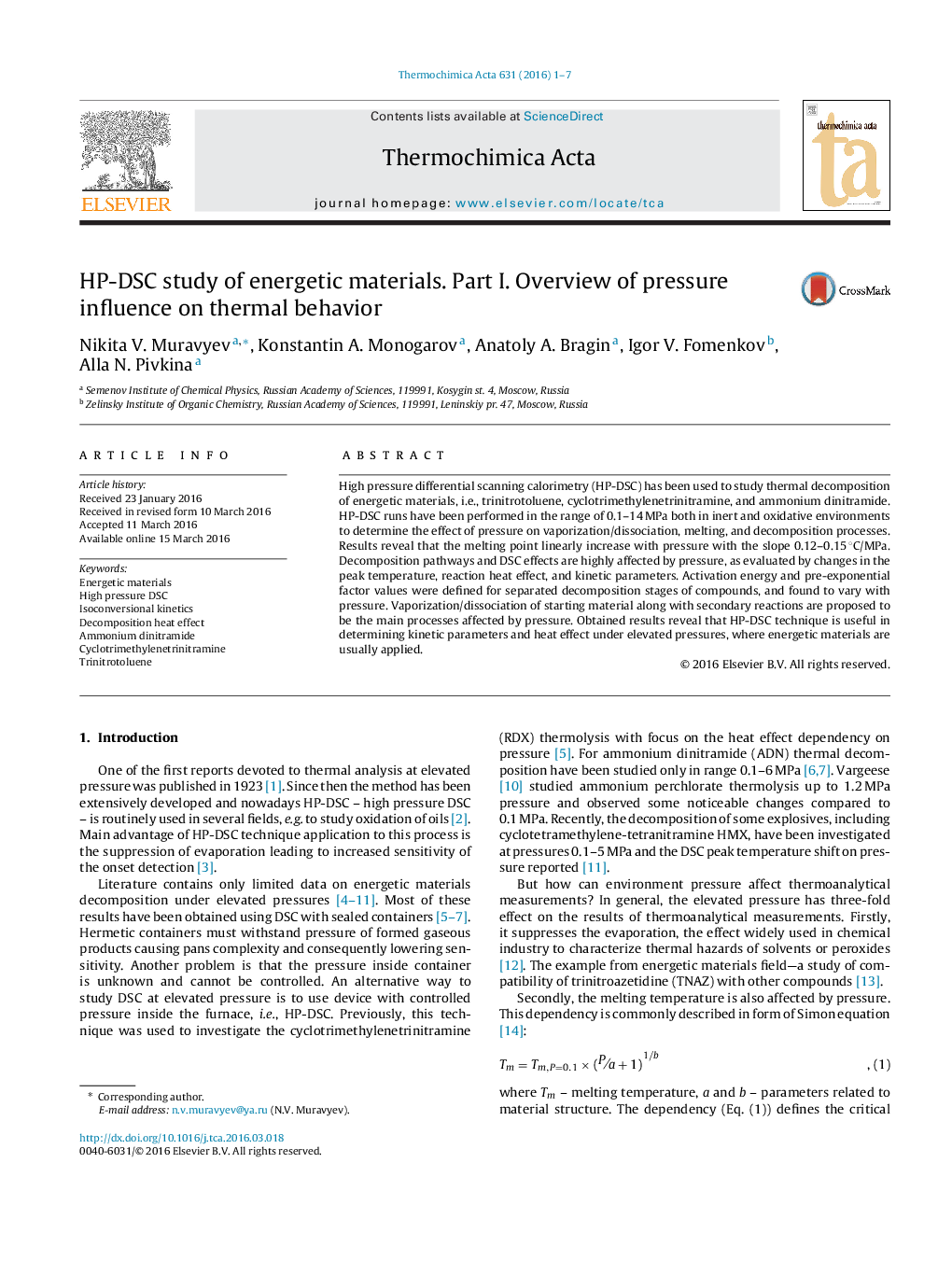| Article ID | Journal | Published Year | Pages | File Type |
|---|---|---|---|---|
| 672666 | Thermochimica Acta | 2016 | 7 Pages |
•Melting temperature linearly increases with pressure.•Mainly vaporization, dissociation and secondary reactions are affected by pressure.•Heat effect variation under nitrogen and air 0.1–14 MPa pressure is provided.•HP-DSC technique is useful in studying energetic materials.
High pressure differential scanning calorimetry (HP-DSC) has been used to study thermal decomposition of energetic materials, i.e., trinitrotoluene, cyclotrimethylenetrinitramine, and ammonium dinitramide. HP-DSC runs have been performed in the range of 0.1–14 MPa both in inert and oxidative environments to determine the effect of pressure on vaporization/dissociation, melting, and decomposition processes. Results reveal that the melting point linearly increase with pressure with the slope 0.12–0.15 °C/MPa. Decomposition pathways and DSC effects are highly affected by pressure, as evaluated by changes in the peak temperature, reaction heat effect, and kinetic parameters. Activation energy and pre-exponential factor values were defined for separated decomposition stages of compounds, and found to vary with pressure. Vaporization/dissociation of starting material along with secondary reactions are proposed to be the main processes affected by pressure. Obtained results reveal that HP-DSC technique is useful in determining kinetic parameters and heat effect under elevated pressures, where energetic materials are usually applied.
Graphical abstractFigure optionsDownload full-size imageDownload as PowerPoint slide
